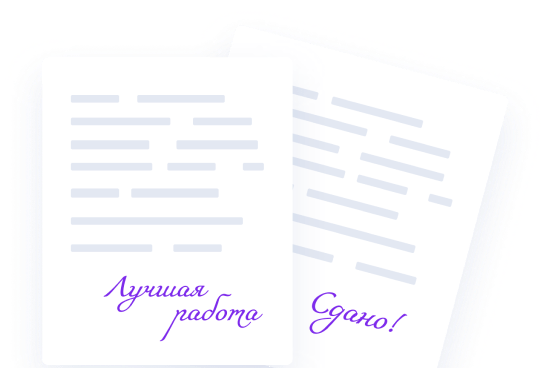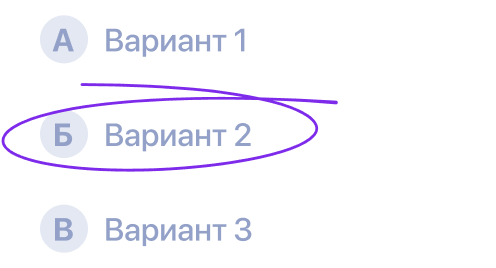Introduction
Выбери формат для чтения
Загружаем конспект в формате pdf
Это займет всего пару минут! А пока ты можешь прочитать работу в формате Word 👇
Economics
Lecture 1: Introduction
Hanifa Tyrkba
Phd, Associate professor
Department of Political Economy, Faculty of
Economics
What does Economics study?
1
the study of how individuals and societies make decisions about ways to
use LIMITED resources to fulfill UNLIMITED wants and needs
2
limited resources in relation to growing needs
3
Problem of choice – how to rationally use limited resources?
Microeconomics
• Decisions of individual units
• No matter how large
• Example: GE’s pricing policy
How do individuals make economic
decisions
Macroeconomics
•
•
•
•
Behavior of entire economies
No matter how small
Example: inflation in Monaco
Economic aggregates: aggregate
output, inflation, unemployment,
GDP
The big picture: growth,
employment, etc.
Is it a good time to switch jobs?
Should you ask for a raise?
HOW
MACROECONOMICS
INFLUENCES
OUR DECISIONS?
Should I buy that new house now or
wait?
Should I get a variable or fixed rate
mortgage?
Fundamental Problem
Scarcity
•
unlimited wants and needs but limited resources
Unlimited wants VS Limited Resources
•
You can’t buy 10 candy bars if the store only has 5 candy bars to sell.
•
Can’t buy 3 burgers if you only have enough money for
TRADE-OFFS
You can’t have it all (SCARCITY – remember) so you
have to choose how to spend your money, time, and
energy. These decisions involve picking one thing over
all the other possibilities – a TRADE-OFF
At this moment have you thought that
you could be doing something else
instead of attending Economics class?
The result of your Trade-Off is the
OPPORTUNITY COST =
The Value of the Next Best Choice
(Ex: Sleeping is the opportunity cost of studying for a test)
University Vs. Work
•
What are you planning on doing after you finish high school?
•
•
University or work
What factors did you consider when making this decision?
•
money now or money later
•
Family
•
How will this decision impact your future?
•
What are the trade offs of this decision? Opportunity cost?
Factors of production = resources
LABOR
LAND
CAPITAL
ENTREPRENEURSHI
P
Production Process
Land
Goods
Labor
Production
Consumers
Capital
Services
Entrepreneurship
Предпринимательство
Labor
Wage
Profit
Factors
of Production
and their
payments
Capital
Land
Interest
Rent
Production possibility curve
Scarcity of resources determines
their alternative use
y
x
Alternative production
of products x and y
Combinations
X
Y
Opportunity costs
A
15
-
B
1
14
15-14=1
C
2
12
14-12=2
D
3
9
12-9=3
E
4
5
4
F
5
5
Household
Consumes final goods and services
Firms
main purpose: maximize profit
Government
Regulates the economy (or not)
Economic
agent
=
Takes part in economic
activities
Economic circular flow
Income of households
Expenditures of households
Households
Market of goods
and services
Firms’ income
Money flows in one
direction
Resources
Market of
resources
Goods and services
Firms
Firms’ expenditures
Goods, services and
resources flow in
another direction
Economic circular flow
Subsidies
Firm
Resources
Taxes
Government
Taxes
Payment for resources
Household
Economic Questions
Society (we) must figure out
WHAT to produce (make)
HOW to Produce it (manufacture)
FOR WHOM to Produce (who gets what)
WHO gets to make these decisions?
What is economic system?
means by which societies or governments organize and distribute
available resources, services, and goods across a geographic region or
country.
Types of economic systems:
• traditional;
• market;
• command (planned)
• mixed
Traditional economic system
The most ancient type of economic
system
Based on primitive economy
Market economic system
Private ownership of property/resources
Business decisions are driven by the desire to
earn a profit
There is a great deal of competition.
Consumers have many choices
no government intervention
Planned economic system
Opposite to market economic system;
Mainly Public property
centralized authority controls a
significant portion of the economic
structure
Mixed economic system
Private sector and public sector combine the
(characteristics of the market and command
economic systems)
Overcomes the disadvantages of market
economic system
Most industries are private, while the rest,
composed primarily of public services, are
under the control of the government
Traditional system
1
Based on customs and traditions, produce what
They need
2
Market system
Firm produces what are consumers willing to buy
(Demand)
What to produce?
3
4
Planned system
However the government decide
Mixed system
Private and public sectors
1
Traditional system
Customs and traditions (farming, hunting, gathering), manual labor
2
Market system
Firms choose the means of production (Most efficient and profitable
Methods)
How to produce?
3
4
Planned system
The government does the planning for
production, factory locations, the occupations of
workers and their salaries
Mixed system
Частный сектор- производители, государство
1
Traditional system
Customs and traditions
2
Market system
Consumers’ income determines who receives which goods/services
For whom to
produce?
3
4
Planned system
The government controls the distribution
Mixed system
Consumers’ income determines who receives which goods/services
Traditional economic system
Advantages
• Stable and predictable
• Doesn’t depend on external factors
Disadvantages
• Slow economic growth rate
• Low standards of life
• Technology, property rights, and
capital investment are largely absent
Market economic system
Advantages
• Individual freedom for everyone
• Little government interference
• Decentralized – not concentrated in
the hands of a few
• Variety of goods and services
• High degree of consumer
satisfaction
Disadvantages
• the lack of social security, social
inequality,
• chaotic distribution of resources,
• economic crisis
Planned economic system
Advantages
• Capable of dramatic change in a
short time
• Little uncertainty over choice of
career, where to work, or losing job
• Many basic education, public health,
and other public services available at
little or no cost
Disadvantages
• Does not meet wants and needs of
consumers
• Lacks effective incentives to get
people to work
• Requires large bureaucracy, which
consumes resources
• New and different ideas
discouraged, no room for
individuality
Mixed economic system
Advantages
Combines advantages of
Market and planned economic systems
Disadvantages
Inflation and unemployment;
High differentiation between poor
and rich
HOW WOULD YOUR RESTAURANT FUNCTION IN
DIFFERENT ECONOMIC SYSTEMS?
Your restaurant in market
system
You answer the basic economic questions!
You determine how much cheese and pepperoni goes on the
pizza
You determine the quality of the cheese and pepperoni
You set your employees wages
You set your business hours
Your restaurant in planned system
The government answers the basic economic questions
The government sets the amount of cheese and pepperoni on each
pizza
The government determines quality of cheese and pepperoni
The government sets employees wages
The government sets business hours
Problem: What does the government know about pizza?
Your restaurant in mixed system
The Government and you both answer the basic economic
questions
You determine the amount of cheese and pepperoni on the pizzas;
government determines the quality of cheese and pizza
You set employee wages; government sets minimum wage for
employees
You determine business hours; government determines whether I
am safe to be open or not
Government in economy
balance between market mechanism
and government regulation, between
private and public sectors
determine the most effective forms of
government intervention in the economy
Index of economic freedom, 2019
Hong Kong
90.2
Singapore
89.4
New Zealand
Switzerland
Australia
Ireland
84.4
81.9
80.9
80.5
low level of government intervention and its sizes
Low tax burden / focus on ease of doing business





